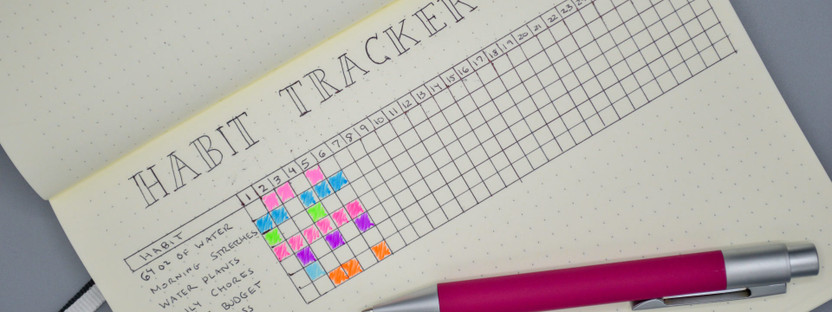How to Form a Habit
Posted by Bindertek on Feb 6th 2018
Ask Bindertek:
I made a career change to real estate last year, and I’m having a hard time keeping up with ongoing education. I wind up wasting time on the web or getting distracted by housework when I should be studying for the required courses needed to renew my license. How can I make studying part of my regular routine?
Doesn’t it always seem that the things you need to do are the things you least want to do? In your case, education is required for your career yet you need to be self-motivated to accomplish it—no small feat! Sheer willpower only goes so far, and you’ve probably tried shaming or bullying yourself into studying without much success. You need to make studying a habit so ingrained in your weekly routine that you do it without thinking.
Make a Game Plan
You’re likely feeling overwhelmed because your goal is both large and super important, adding to the pressure you feel. Start channeling your energy into something other than worrying by making a plan. Once you have a plan in place, you remove the likelihood of decision fatigue since your task for the day or week is already decided for you.
- Commit to a certain length of time to keep your goals actionable and time-sensitive. In your case, your goal is already time-sensitive since you need to pass your required courses by a set date in order to have your license renewed. For goals with no outwardly defined deadline, set one yourself to encourage momentum.
- Make your looming goal actionable by setting smaller SMART goals (Specific, Measurable, Attainable, Realistic, Time-Related). SMART goals break down larger, abstract tasks into smaller habits you can process easily—like “studying for 30 minutes every weekday at 5pm” and “reviewing the week’s notes every Sunday afternoon.”
- Assemble the tools and support you need to remove possible roadblocks that will throw you off course or sap your willpower. Do you need a dedicated study location away from distractions? Can you enlist family members in leaving you alone during study time? Do you remember more when you take notes on paper vs a laptop?
Keep your personal circadian rhythms and schedule in mind when forming your plan, as you want to take advantage of your most productive periods of the day.
Remind Yourself with a Trigger
With your plan completed, you need to encourage follow-through to avoid losing momentum. Your existing habits were formed by a three-part habit loop: a trigger, the habit, and the reward. Mimic this process and choose a trigger that fits easily in your existing routine to prompt new habit formation. Again, you’ll have an easier time committing to your goals if you remove as many obstacles as possible.
- Visual Triggers: A visual trigger is an object or item whose presence reminds you of the action you need to complete. You could put a bright sticky note on your keyboard or place your notes on top of your laptop, forcing you to move (and acknowledge them) before any screen time.
- If-Then Triggers: The if-then system forms associations between actions, times, and/or locations to encourage habit formation. Think of statements like, “If it is 4pm, then I will stop what I’m doing and study,” or “If I need to roast chicken for dinner, then I will review notes while it’s in the oven.”
After completing your task, reward yourself with something to help close the habit loop, like allowing yourself to relax for the night after your study session.
Track Your Progress
It’s common to get burned out when pursuing a long-term habit, especially if progress seems slow at first. Keep track of your progress to have a clear record of your commitment to your new habit to review when you feel discouraged, and to better appreciate your journey when you look back in the future. Check days off on a wall calendar, take quick notes of how you feel, and ask others to cheer you on. While common wisdom quotes “it takes 21 days to build a habit,” research has shown it depends on the task and its difficulty, among other factors. Having the data to look back at your journey will be a big help if you start to struggle.
Once you have a successful process to form new habits, you can tweak and repeat it as necessary to accomplish all kinds of professional and personal goals. Good luck!

